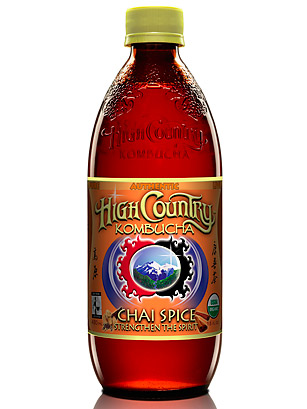
Ed Rothbauer thought his career in construction was over after a fall from a roof left him paralyzed from the ribs down. Little did he know at the time that out of this tragedy he would find his calling in life, in the form of a millennia-old drink whose fans attribute to it mystical healing powers.
While rehabilitating at Craig Hospital in Denver, Rothbauer was introduced to kombucha tea, an effervescent beverage made from fermenting black tea and sugar in a symbiotic culture of yeast and bacteria. Rothbauer attributes his recovery from paralysis in part to the drink, and raves about its ability to promote healthy digestion and infuse the drinker with energy.
Rothbauer isn't the only one who discovered kombucha in the 1990s and who swears by it's powers to heal and buttress the immune system. G.T. Dave, owner of Synergy Drinks, the nation's largest manufacturer of kombucha, attributes his mother's recovery from breast cancer to kombucha. Since that time, the drink has slowly gained popularity among the health conscious and celebrities like Lindsay Lohan and Gwyneth Paltrow, who have touted it's ameliorative effects — despite a lack of any corroboration of these supposed powers by government or independent researchers.
Though the market for kombucha remains small relative to the beverage industry as a whole, it's one of the few parts of that industry that is growing rapidly. According to SPINS, a market research and consulting firm for the Natural Products Industry, total sales of kombucha have grown 27% in the past year to roughly $370 million. BevNet, an industry publication predicts sales of the product will reach $500 million by 2015. The story of this growth has not been written, however, by the nation's biggest food and beverage providers. The industry is dominated by smaller, regional players who began brewing the tea in kitchens and basements, much like Rothbauer and his partner, Steve Dickman and their firm, High Country Kombucha.
Soon after recovering from his paralysis, in 1991, Rothbauer and his partner were brewing their own kombucha out of Rothbauer's home near Vail, Colorado. Their homemade brew was popular enough with locals that the pair could make a profit from brewing extra tea and selling it around town. Says Rothbauer, "We were selling it in mason jars and doing about thirty bottles a week. We thought well, if it's doing that well here, there might be a market for this stuff." Thus High Country was born.
The company's growth continued apace. By the early 2000s, Rothbauer and Dickman were brewing their tea in a commercial kitchen, but demand consistently outstripped what they could produce. They spent the decade ramping up their capacity, only to find more demand waiting on the horizon. Their first big break was landing their product on the shelves of the Colorado-based health food store Vitamin Cottage, which has locations in several western states. By the time their first proper factory was up and running, its 50,000 bottles-a-month capacity wasn't able to meet demand.
Around this time, High Country inked a deal with Whole Foods to be distributed across the country, making one of only two brands at the time that were available nationally. The deal capped a run of meteoric growth for a company that was headquartered in Rothbauer's kitchen just a few years before. But a strange crisis was about to rock the kombucha industry and potentially bankrupt High Country altogether.